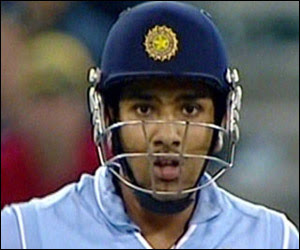The form
of just one or two players in every tournament can ruin our hopes of winning it.
Now that the T20 World cup is gathering momentum, we are likely to see a few
players going through a bad patch. Here’s a quick take on it from a psychological
perspective based on the conscious competence learning model. The best way to
explain this is to wind back to our own childhood days and think of something
that we really wanted to do. In my case, Cricket.
 |
| Rohit Sharma - under fire |
When I
was about four years old, I was unconsciously incompetent, meaning that I
didn’t even know whether I can play cricket or not. Then I started bugging just
about anyone who could throw a ball at my tiny plastic bat. Even though the
ball came at me at the speed of a thousandth of a Malinga delivery, most often
than not, I missed, fumbled and fell. Now I had successfully graduated to being
consciously incompetent. Then I tried playing more often, before school, after
school, inside and outside the house and later on, by going for cricket
practices. That was my attempt to be consciously competent. But that still won’t
make a great batsman like Kholi, Amla or Mahela. That also explains why I am only
writing this article and not playing in the tournament. As one keeps practicing,
one becomes unconsciously competent. You no longer have to think of the shots
to play, where to place them, how hard and at which angle to hit them. All of
it comes naturally, almost like the ball wants to be caressed by the bat.
That’s when you are a good batsman. You are on autopilot.
Thinking
is an exhaustive process and a player can’t bat through many overs with higher
levels of mental exhaustion. So, a few shots after a batsman has walked in to
the middle, his autopilot needs to take over.
Imagine the kind of pressure the reflective system that handles thinking
has to deal with; playing for the country, the atmosphere, the target to reach
and the overs remaining, with the speed of the delivery, the spin, the angle, the
muscle co-ordination. It’s just too much. That’s when a batsman miss -times a
ball and gets out. It’s purely because the reflective system in the brain is
slower and this is further hampered by the situational pressures. He can play only
a few deliveries with this kind of pressure but can’t keep it up for long. It
is when the transition from the reflective system to the autopilot mode doesn’t
happen, that a batsman is out of form, much to our dismay.
Not being a sportsman doesn’t mean you’re spared from being out of form. It is something we all go through, in our daily lives. Fortunately for us though, the entire world isn’t watching us when that happens
.

No comments:
Post a Comment